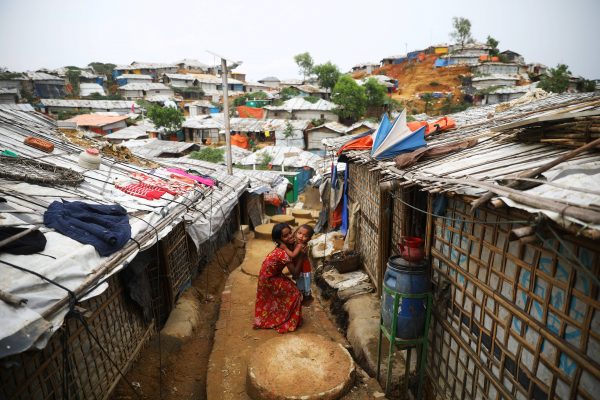In Myanmar, civilian and military leaders deny targeting Muslims in Rakhine and insinuate that the international community is exaggerating the severity of the violence — a view echoed by nationalist hardliners.
The number of people in Bangladeshi camps has increased to more than 720,000, prompting ASEAN to deliberate a credible response. During the ASEAN Foreign Ministers’ Meeting in January 2019, discussion focussed on safe and voluntary repatriation of refugees currently living in displacement camps in Bangladesh. They finalised plans for the ASEAN Coordinating Centre for Humanitarian Assistance on Disaster Management (AHA Centre) to conduct a needs assessment in Rakhine. This will allow them to better understand areas of cooperation that ASEAN could support in the repatriation process to build the confidence and trust of refugees to return home.
ASEAN seeks to establish a safe and sustainable environment that refugees will voluntarily return to.
But the recent escalation of violence between the Myanmar national armed forces and the outlawed Arakan Army, an insurgent group in Rakhine, forced ASEAN to postpone the AHA Centre needs assessment. ASEAN released a statement at the 33rd ASEAN Summit held in Singapore to express their deep concern at the growing humanitarian crisis in Myanmar.
This is a positive step towards recognising that the humanitarian crisis in Myanmar requires urgent regional action and highlighting to the Myanmar government that more needs to be done. ASEAN must demonstrate its innovative spirit and practical problem-solving to tackle the Rakhine crisis.
Member states must be willing to work with the affected countries both bilaterally and through ASEAN. They can also unilaterally engage with the United Nations and other international organisations operating in refugee camps in Bangladesh. The two key concerns highlighted by refugees during Dr Vivian Balakrishnan’s (Singapore’s Foreign Minister) visit to a refugee camp in November 2018 were the safety of their families and their livelihoods should they return to Myanmar. ASEAN can address these concerns by continuing to engage Myanmar and facilitating discussions to develop long-term peace solutions. It is critical that solutions should not only target those returning to Rakhine from displacement camps, but also address the concerns of minority groups currently living in desperate circumstances in the state.
ASEAN can directly support certain areas to enable sustained peace and security in Rakhine. Possible measures include improving education by building schools, providing vocational training and developing community healthcare facilities.
A reconciliation process needs to be put in place to allay the distrust, fear and anger among different groups. As witnessed in other countries with internal conflict, reconciliation is a long and tedious process. No systematic reconciliation processes have started, but an Independent Commission of Enquiry has been set up by the Myanmar government. It is yet to be seen if the process will be properly pursued with impartiality and if those responsible for the violence will be held accountable.
Establishing a legal redress mechanism, similar to the Extraordinary Chambers in the Courts of Cambodia set up to prosecute the crimes of the Khmer Rouge, could play a significant role in the reconciliation process. A country or organisation that has not been involved in the conflict, like ASEAN, could be perceived as a trusted party to start such a tribunal.
ASEAN can start this process by putting together lessons learnt from the conflict, organising support groups on the ground to better understand the grievances of the people living in the state, and bringing together different communities and the government to overcome the past.
ASEAN’s adherence to the principle of non-interference is its biggest hurdle to playing a more instrumental role in Rakhine. It surfaces whenever ASEAN attempts to discuss a pressing problem in one of its member states. For ASEAN to function more effectively, the relevance of the non-interference rule in crisis situations needs to be recalibrated.
The most direct signal of ASEAN’s determination to assist would be a review of the ASEAN Agreement on Disaster Management and Emergency Response (AADMER). AADMER only allows ASEAN to act during a humanitarian situation at the request of the affected member state. It would be easier to legitimise any form of assistance on humanitarian grounds if there was a detailed framework and set of protocols on how ASEAN could be involved in dealing with conflict, post-conflict and other complex humanitarian circumstances.
Experiences from Africa would be useful in framing mechanisms to tackle complex humanitarian situations as Africa has experienced multiple guerrilla wars and pandemics such as the Ebola outbreak.
As ASEAN remains the only regional organisation in Southeast Asia, leaders cannot turn a blind eye to any form of human suffering in the region. The challenge of developing a strong and clear humanitarian mandate under the AADMER will only grow in the future.
Vishalini Suresh is a Senior Analyst in the Office of the Executive Deputy Chairman of the S Rajaratnam School of International Studies (RSIS), Nanyang Technological University (NTU), Singapore.
A version of this article was first published here on RSIS.

